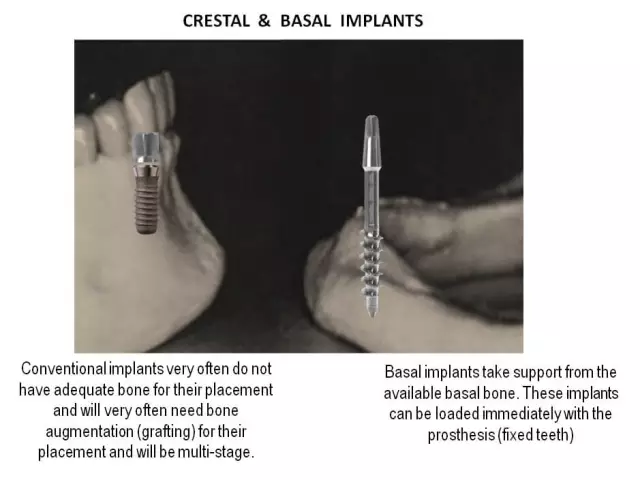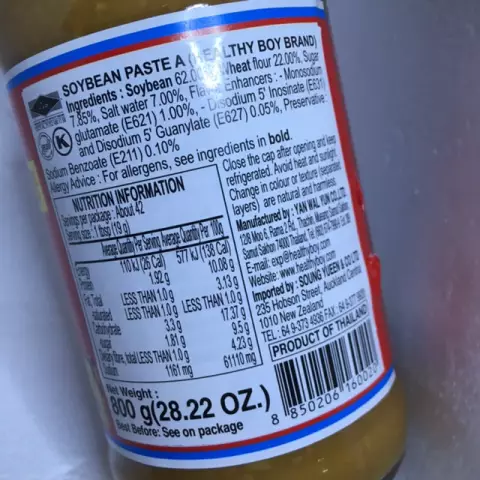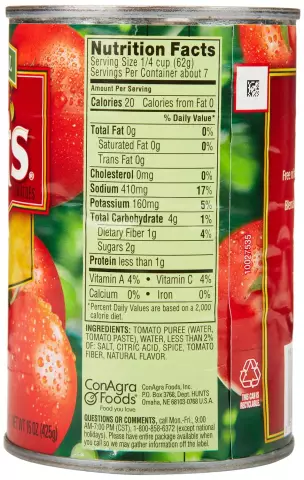- Author Rachel Wainwright wainwright@abchealthonline.com.
- Public 2023-12-15 07:39.
- Last modified 2025-11-02 20:14.
Solcoseryl dental adhesive paste
Solcoseryl dental adhesive paste: instructions for use and reviews
- 1. Release form and composition
- 2. Pharmacological properties
- 3. Indications for use
- 4. Contraindications
- 5. Instructions for using the paste: method and dosage
- 6. Side effects
- 7. Overdose
- 8. Special instructions
- 9. Application during pregnancy and lactation
- 10. Use in childhood
- 11. Use in the elderly
- 12. Drug interactions
- 13. Analogs
- 14. Terms and conditions of storage
- 15. Terms of dispensing from pharmacies
- 16. Reviews of the paste
- 17. Price of pasta in pharmacies
Latin name: Solcoseryl dental adhesive paste
ATX code: A01AD11
Active ingredient: solcoseryl (deproteinized dialysate from the blood of dairy calves)
Producer: Legacy Pharmaceuticals Switzerland GmbH (Switzerland), Gedeon Richter (Hungary)
Description and photo update: 2018-23-10

Solcoseryl dental adhesive paste is a drug for local use in dental practice, which improves tissue trophism and stimulates the process of tissue regeneration.
Release form and composition
The dosage form of the drug is a paste for local use: a granular homogeneous mass of pale beige color with a pleasant menthol aroma, easily distributed in the oral cavity (5 g in aluminum tubes, in a cardboard box 1 tube).
1 g of paste contains:
- active ingredients: solcoseryl [dialysate from the blood of healthy dairy calves of the Bos Taurus species, deproteinized, standardized biologically and chemically (in terms of absolutely dry matter)] - 2.125 mg; polidocanol 600 - 10 mg;
- auxiliary components: sodium carboxymethyl cellulose, peppermint oil, menthol;
- paste base: sodium carboxymethyl cellulose, pectin, gelatin, polyethylene, liquid paraffin;
- preservatives: propyl parahydroxybenzoate (E 216), methyl parahydroxybenzoate (E218).
Pharmacological properties
Pharmacodynamics
Solcoseryl dental adhesive paste is a combined preparation, the action of which is due to its active components:
- dialysate from the blood of healthy dairy calves of the Bos Taurus species, deproteinized, standardized biologically and chemically, obtained by ultrafiltration: includes a large number of various low molecular weight compounds with a mass of up to 5000 Da - nucleosides and nucleotides, oligopeptides, glycolipids, amino acids, electrolytes, trace elements, intermediate metabolic products carbohydrates and fats. At the cellular level, it activates the transport of nutrients and oxygen, increasing its consumption by the cell, stimulates the synthesis of adenosine triphosphates (ATP), increases proliferation in case of reversible cell damage, especially in conditions of low oxygen content, thereby accelerating wound healing processes, activates the process of angiogenesis, contributing to revascularization of ischemic plots, and also provides conditions,favorable for collagen synthesis, growth of new granulation tissue, accelerating subsequent re-epithelialization and wound closure. Dialysate also has a cytoprotective and membrane stabilizing effect;
- polidocanol 600: local anesthetic that acts in the region of peripheral nerve endings and causes their reversible blockage; has a fast and long-lasting local anesthetic effect. The pain stops after 2-5 minutes after applying the paste to the mucous membrane of the mouth, the analgesic effect lasts for 3-5 hours.
Due to this composition, the dental paste forms a protective healing layer on the affected area of the oral mucosa, protecting it from mechanical and chemical damage for 3 to 5 hours, performing the function of a medicinal dressing.
Pharmacokinetics
Pharmacokinetic studies have not been conducted.
Indications for use
Solcoseryl dental adhesive paste is recommended for topical use in patients of all ages for the purpose of pain relief, protection of the wound surface and acceleration of healing in the following diseases / conditions:
- gingivitis and periodontal diseases, including postoperative conditions (implantation, dental calculus removal, etc.);
- pressure sores formed from removable dentures in the process of adaptation to them;
- stomatitis, including angular stomatitis (seizures);
- alveolitis;
- lesions of the oral mucosa with pemphigus.
Contraindications
Solcoseryl dental adhesive paste is contraindicated for use in patients with proven hypersensitivity to its components, including free parahydrobenzoic acid, the presence of which in the residual amount is due to the requirements of the technological process of the preparation.
Instructions for the use of Solcoseryl dental adhesive paste: method and dosage
Solcoseryl dental adhesive paste is applied topically, by applying to the mucous membrane of the oral cavity after meals and before going to bed.
Recommended dosage: a strip of dental paste about ½ cm long is applied to the mucous membrane of the oral cavity with a thin layer, without rubbing, with a finger or a cotton swab, and then slightly moistened with water; repeat the procedure 3-5 times / day; therapy is carried out until symptoms disappear.
Before applying the paste, it is necessary to dry the affected surface with a gauze or cotton swab. The use of the drug on undried mucosa can reduce the duration of the therapeutic effect.
To treat pressure ulcers from the use of removable dentures, the paste must be applied to a dry denture, and then moistened with water.
A dose of 5 g (1 tube) is usually enough for the course.
Side effects
The use of Solcoseryl dental adhesive paste can cause the following local negative side effects: dysgeusia (change in taste), hypersensitivity reactions (local swelling).
If any side effects occur, you should stop using the dental paste and seek medical advice.
Overdose
There is no data.
special instructions
The drug should not be placed in the wound cavities formed as a result of the removal of molars, wisdom teeth and after resection of the apex of the teeth (apicotomy), if the edges of the holes are pulled together with sutures.
Solcoseryl dental adhesive paste does not contain antimicrobial components. If it is necessary to treat the area of the oral mucosa affected by the infection, its preventive drug treatment / treatment is required, aimed at eliminating the inflammation.
Influence on the ability to drive vehicles and complex mechanisms
There is no data on the negative impact of the use of dental paste on the ability to drive vehicles and perform other complex types of work.
Application during pregnancy and lactation
According to the instructions, Solcoseryl dental adhesive paste has no contraindications for use during pregnancy and during breastfeeding (lactation).
Pediatric use
In pediatric practice, Solcoseryl dental adhesive paste is used according to indications without age restrictions.
Use in the elderly
In gerontological practice, the drug is used according to indications without age restrictions.
Drug interactions
Cases of interaction of Solcoseryl dental adhesive paste with other drugs have not yet been observed.
If it is necessary to use the paste simultaneously with other preparations used for rinsing the mouth, it must be applied after rinsing.
Analogs
Solcoseryl analogs of dental adhesive paste are: Chlorophyllipt, Efizol, Ingalipt, Decatilen, Givalex, Levomekol, etc.
Terms and conditions of storage
Store at temperatures up to 30 ° C. Keep out of the reach of children.
They are not signs of deterioration in the quality of the paste: grainy-dry consistency, which ensures its optimal adhesive qualities, as well as the possible release of oil when the tube is opened.
Shelf life is 4 years.
Terms of dispensing from pharmacies
Available without a prescription.
Reviews about Solcoseryl dental adhesive paste
Most reviews of Solcoseryl dental adhesive paste indicate its high efficiency. Patients note that the paste is very good pain relief and accelerates the healing process after tooth extraction, helps with bleeding gums, and treats periodontal disease.
The disadvantages are mainly the complexity of the application and the relatively high cost of the paste.
The price of Solcoseryl dental adhesive paste in pharmacies
The approximate price for Solcoseryl dental adhesive paste for a tube of 5 g is about 330-360 rubles.

Maria Kulkes Medical journalist About the author
Education: First Moscow State Medical University named after I. M. Sechenov, specialty "General Medicine".
Information about the drug is generalized, provided for informational purposes only and does not replace the official instructions. Self-medication is hazardous to health!






